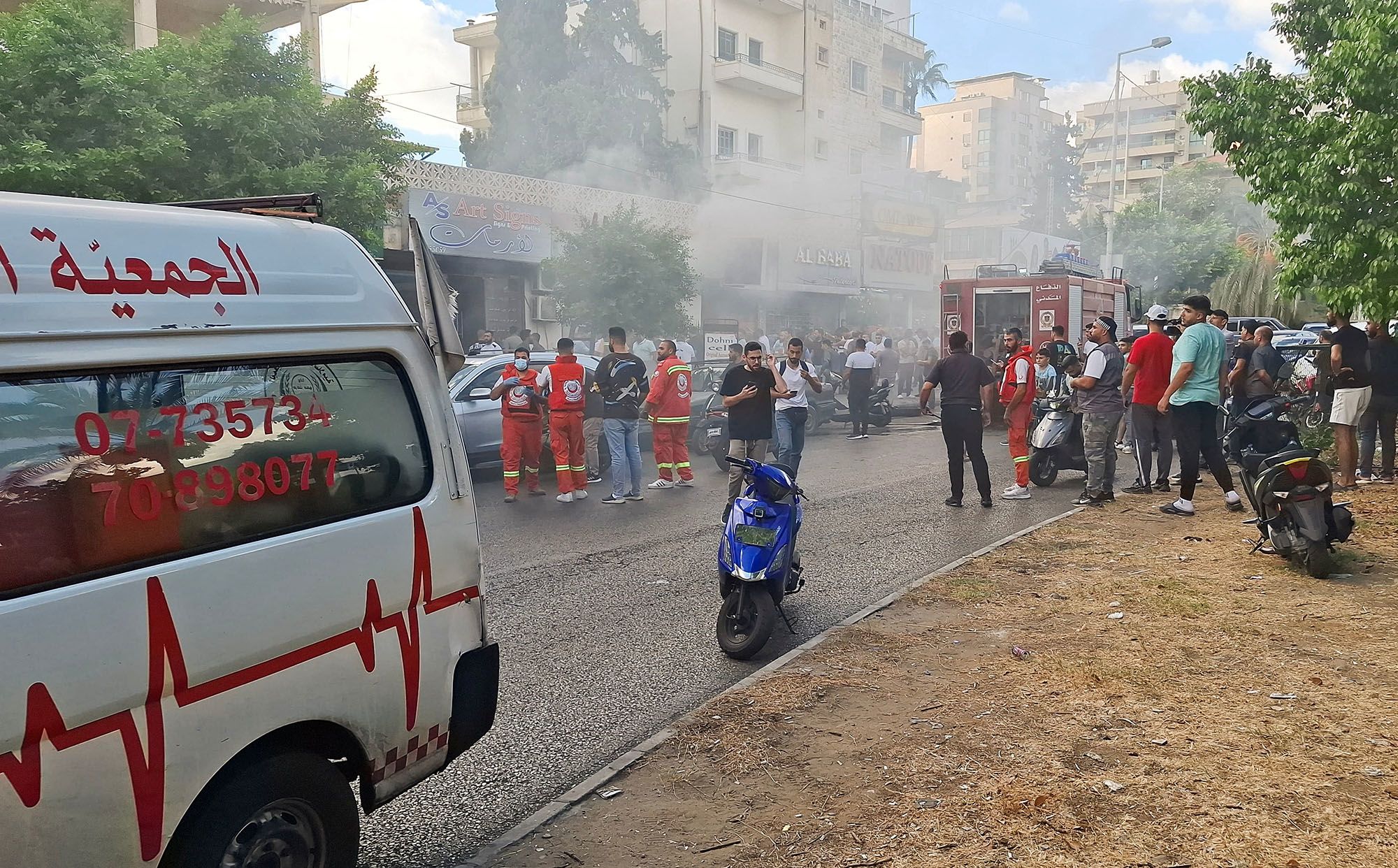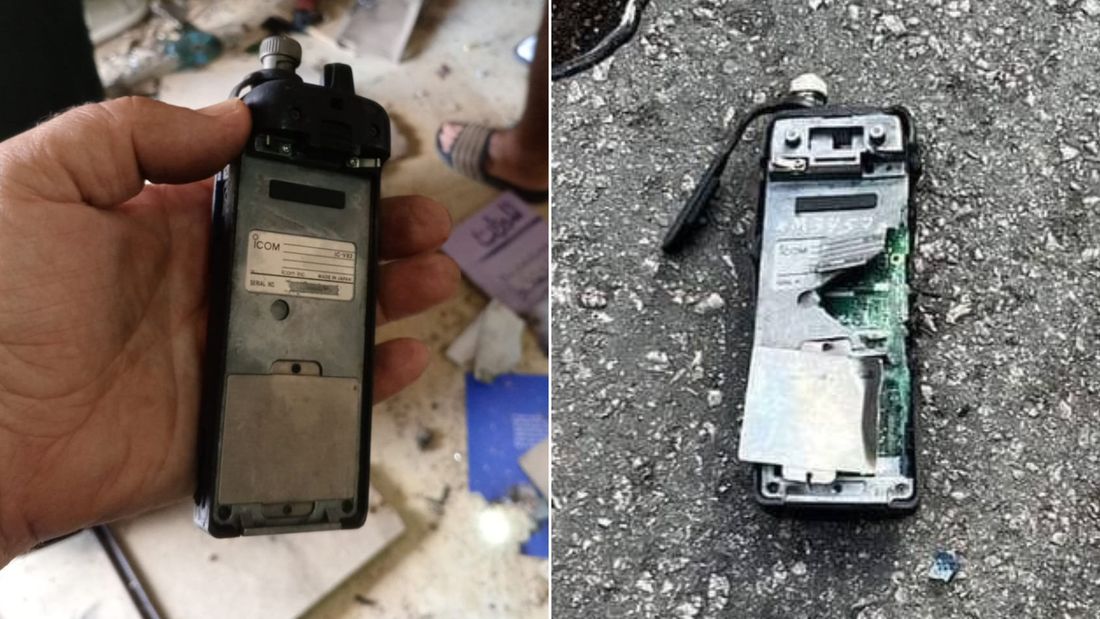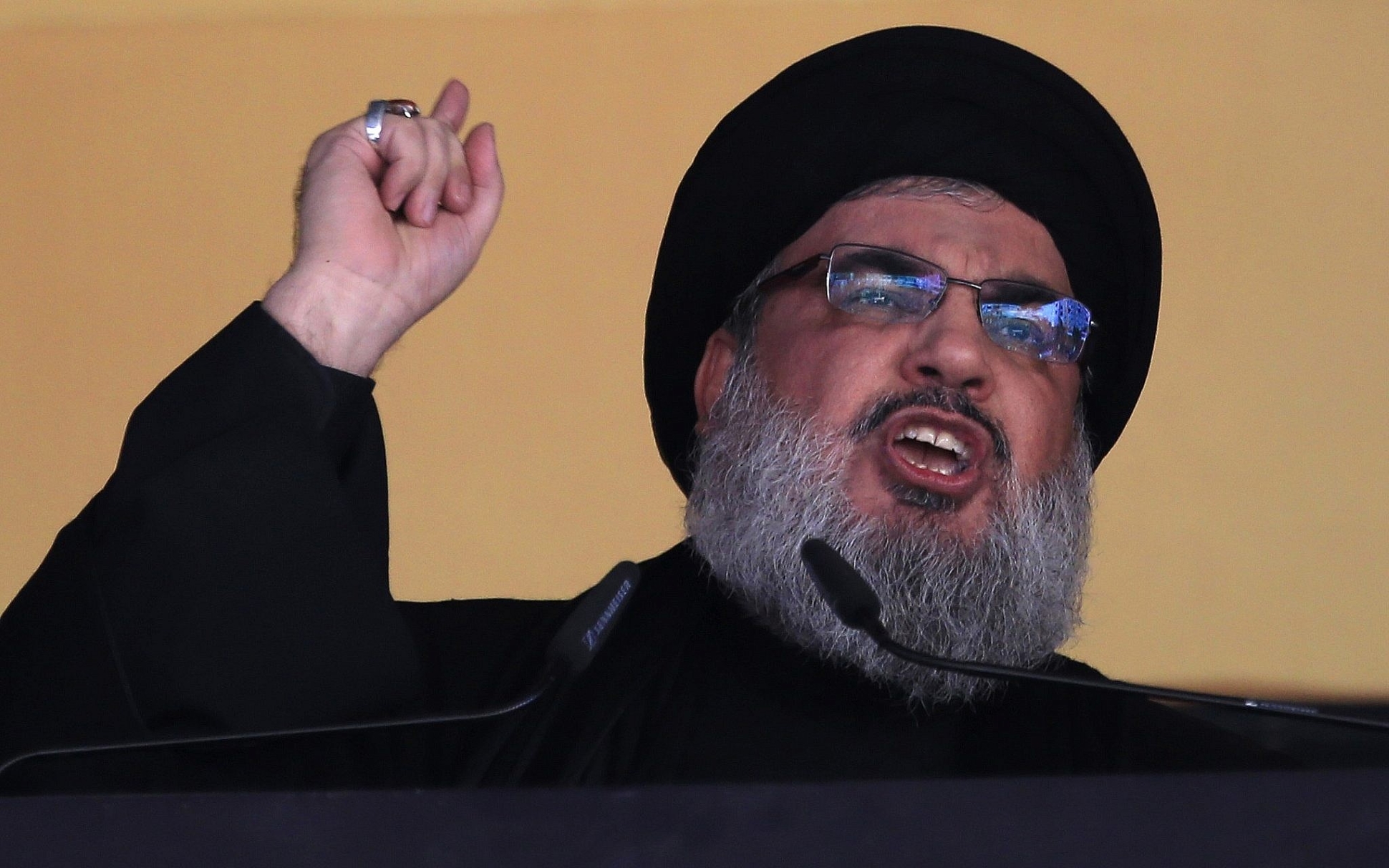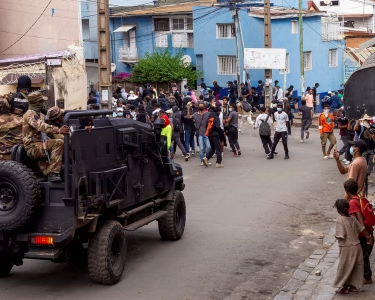Dozens of walkie-talkies exploded across Lebanon on Wednesday, a security source told CNN, just one day after blasts targeting the devices of Hezbollah members injured thousands.
Preliminary reports suggested that there were between 15 and 20 explosions in southern suburbs of Beirut, and a further 15 to 20 blasts in southern Lebanon, the source said.
At least nine people were killed, and more than 300 injured in Wednesday’s waves of explosions, according to the country’s health ministry. “The Army Command asks citizens not to gather in areas witnessing security incidents to allow the arrival of medical teams,” the Lebanese Army warned citizens in a post on X.
 An ambulance drives through a southern suburb of Beirut after explosions were heard.
An ambulance drives through a southern suburb of Beirut after explosions were heard.
A witness who was at a Hezbollah funeral in the southern suburbs of Beirut on Wednesday described to CNN the chaos as walkie-talkies appeared to explode at around 5 p.m. local time (10 a.m. ET) on Wednesday. The witness, who cannot be named for security reasons, told CNN that a loud bang went off, followed by screaming. They said that the man whose wireless device exploded was covered in blood and his hands had been blown off.
Photographs meanwhile showed walkie-talkie devices that had been ripped apart during the explosions.
Wednesday’s blasts come almost exactly 24 hours after the near-simultaneous explosions targeting pagers of the military group Hezbollah, exposing a massive security breach among its members.
Hezbollah on Tuesday vowed to respond to what it called an Israeli attack, which killed multiple people and injured thousands across Lebanon on Tuesday. A child was among at least nine killed in those blasts, which wounded about 2,800 people, Lebanese Health Minister Firass Abiad said.
 Smoke rises from a mobile shop in Sidon, south of Beirut, on Wednesday.
Smoke rises from a mobile shop in Sidon, south of Beirut, on Wednesday.
Questions have since arisen about how low-tech wireless communication devices could have been exploited. The New York Times reported that Israel planted explosives inside a batch of pagers ordered from the Taiwanese manufacturer Gold Apollo, which were intended for Hezbollah. The report added that a switch was embedded in the devices to detonate them remotely.
This unprecedented attack, along with the fresh blasts on Wednesday, risks further escalating tensions in the Middle East, already heightened by Israel’s ongoing war with Palestinians in Gaza.
 Two damaged devices after Wednesday’s explosions.
Two damaged devices after Wednesday’s explosions.
This is a developing story and will be updated as more information becomes available.







